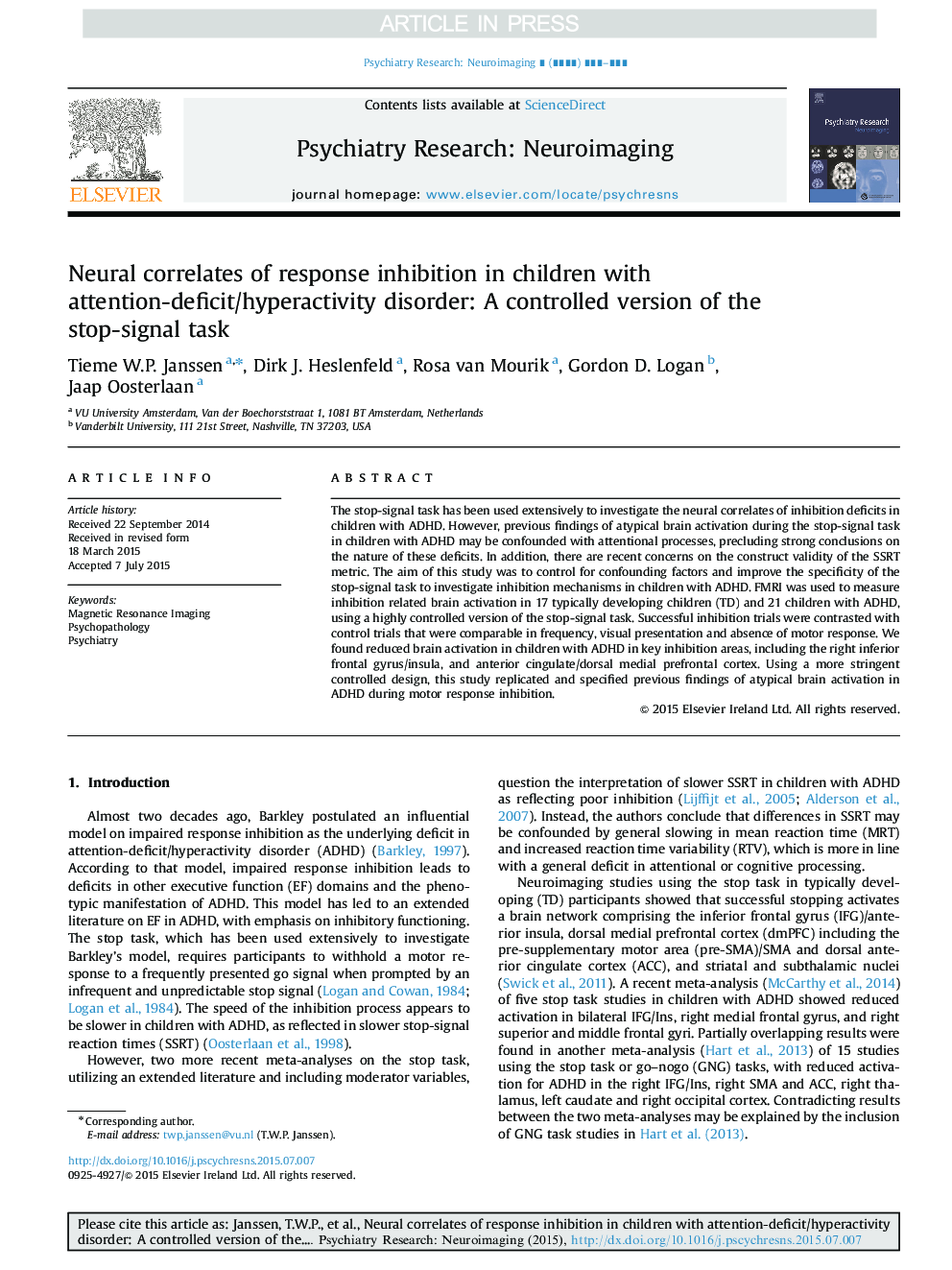| Article ID | Journal | Published Year | Pages | File Type |
|---|---|---|---|---|
| 10305375 | Psychiatry Research: Neuroimaging | 2015 | 7 Pages |
Abstract
The stop-signal task has been used extensively to investigate the neural correlates of inhibition deficits in children with ADHD. However, previous findings of atypical brain activation during the stop-signal task in children with ADHD may be confounded with attentional processes, precluding strong conclusions on the nature of these deficits. In addition, there are recent concerns on the construct validity of the SSRT metric. The aim of this study was to control for confounding factors and improve the specificity of the stop-signal task to investigate inhibition mechanisms in children with ADHD. FMRI was used to measure inhibition related brain activation in 17 typically developing children (TD) and 21 children with ADHD, using a highly controlled version of the stop-signal task. Successful inhibition trials were contrasted with control trials that were comparable in frequency, visual presentation and absence of motor response. We found reduced brain activation in children with ADHD in key inhibition areas, including the right inferior frontal gyrus/insula, and anterior cingulate/dorsal medial prefrontal cortex. Using a more stringent controlled design, this study replicated and specified previous findings of atypical brain activation in ADHD during motor response inhibition.
Related Topics
Life Sciences
Neuroscience
Biological Psychiatry
Authors
Tieme W.P. Janssen, Dirk J. Heslenfeld, Rosa van Mourik, Gordon D. Logan, Jaap Oosterlaan,
